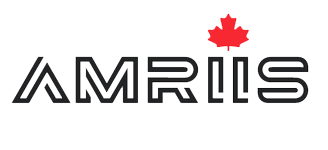The Temporary Foreign Worker Program (TFWP) allows Canadian employers to temporarily hire foreign nationals to address labor shortages in Canada. This program is jointly managed by Immigration, Refugees and Citizenship Canada (IRCC) and Employment and Social Development Canada (ESDC).
Temporary Foreign Worker Program

The Temporary Foreign Worker Program (TFWP) helps Canadian employers recruit the foreign talent needed to fill labor shortages. It also ensures that these workers receive the appropriate rights and protections to work safely in Canada. Under the TFWP, employers can hire temporary foreign workers in various sectors, including:
- High-wage Workers
- Low-wage Workers
- Global Talent Stream
- Foreign Agricultural Workers
- Caregivers
- Foreign Academics
A key feature of the TFWP is the requirement for a Labour Market Impact Assessment (LMIA). Employers wishing to hire a foreign national must first obtain an LMIA, proving that they were unable to find a Canadian citizen or permanent resident for the position. Only after obtaining the LMIA can an employer begin the process to allow the foreign worker to apply for a Canadian work permit or permanent residency.
There are also temporary work options that do not require an LMIA, organized under the International Mobility Program. This program is designed to handle work permit applications exempt from the LMIA.
Labour Market Impact Assessment
A Labour Market Impact Assessment (LMIA) is a document issued by Employment and Social Development Canada (ESDC) that examines the effect of hiring a foreign worker on the Canadian labor market.
Positive LMIA: This assessment indicates that there is no Canadian citizen or permanent resident available to fill the position, allowing the employer to hire a foreign national.
Negative LMIA: This assessment indicates that the position should be filled by a Canadian citizen or permanent resident.
For more information on Labour Market Impact Assessments, including requirements and application procedures, please refer to the resources available from ESDC.
International Mobility Program
The International Mobility Program (IMP) allows Canadian employers to hire temporary foreign workers without the need for a Labour Market Impact Assessment (LMIA). While most employers must obtain an LMIA, there are situations where exemptions apply. These exemptions are based on the following criteria:
Significant benefits: Economic, cultural, or other significant benefits to Canada.
Reciprocal benefits: Benefits for Canadians and Canadian permanent residents.
To hire a foreign worker under the IMP, a Canadian employer must follow three steps:
- Eligibility check: Ensure that the position or worker is eligible for an LMIA exemption.
- Fee payment: Pay the employer compliance fee, which amounts to CAD 230.
- Submission of the job offer: Submit the official job offer through the IMP employer portal.
Once these steps are completed, the foreign worker can apply for their work permit. Workers exempt from the LMIA may benefit from expedited processing of their application under the Global Skills Strategy if their position corresponds to Skill Levels A or 0 of the NOC and they apply from outside Canada.
Global Talent Stream (GTS)
The Global Talent Stream (GTS) is a two-year pilot program launched in June 2017, in partnership between Immigration, Refugees and Citizenship Canada (IRCC) and Employment and Social Development Canada (ESDC). This program helps Canadian employers recruit highly skilled international talent, allowing them to remain competitive on the global stage. Employers who meet the GTS criteria can expedite the hiring process of foreign nationals through the Global Skills Strategy.
High-wage Workers
If an employer wishes to hire a temporary foreign worker whose hourly wage is equal to or greater than the median hourly wage of their province or territory, they must submit an application under the Temporary Foreign Worker Program (TFWP) for high-wage workers. The first step is to obtain a Labour Market Impact Assessment (LMIA) demonstrating that the employer has been unable to find a Canadian citizen or permanent resident for the position.
Once a positive LMIA is obtained for a high-wage position, the employer must inform the foreign worker of the results and indicate that they must apply for work authorization in Canada before the LMIA expires. With a positive LMIA and a signed job contract, the worker can then apply for their work permit or, depending on their eligibility, apply for permanent residency.
Low-wage Workers
If an employer wishes to hire a temporary foreign worker whose wage is below the median hourly wage of their province or territory, they must apply under the Temporary Foreign Worker Program (TFWP) for low-wage workers. The first step is to obtain a Labour Market Impact Assessment (LMIA) proving that the employer has been unable to find a Canadian citizen or permanent resident for the position.
Employers must meet specific requirements for LMIA regarding low-wage workers to ensure the rights and safety of non-resident workers. Once a positive LMIA is obtained for a low-wage position, the employer must inform the foreign worker of the results and indicate that they must apply for work authorization in Canada before the LMIA expires.
With a positive LMIA and a signed job contract, the worker can then apply for their work permit or, depending on their eligibility, apply for permanent residency.
Foreign Agricultural Workers
Canadian employers who wish to hire temporary foreign workers for positions in agricultural production can utilize one of the agricultural streams of the Temporary Foreign Worker Program (TFWP). Canada offers two specific streams to facilitate the hiring of foreign workers in this sector. To be eligible for either stream, the employer must meet the following criteria:
- Production must occur in specific product sectors listed on Canada’s national product list.
- The activity must be related to primary farm agriculture and correspond to the following National Occupational Classification (NOC) codes: 80020, 80021, 21112, 82031, 84120, 85103, and 85101.
If an employer meets these criteria, they may be eligible for one of the following two streams:
Seasonal Agricultural Worker Program (SAWP)
The SAWP allows employers to hire temporary foreign workers for seasonal positions in agricultural production for a maximum duration of eight consecutive months. General requirements for hiring foreign agricultural workers must be met, and the workers must be citizens of Mexico or one of the Caribbean countries participating in the SAWP bilateral agreement. Employers must submit an LMIA specifying the details of the SAWP.
Employers recruiting through the SAWP must ensure transportation for workers to and from their country of residence, provide adequate housing during the work period, and ensure appropriate health and safety conditions in the workplace. Participating countries in the SAWP include: Mexico, Anguilla, Antigua and Barbuda, Barbados, Dominican Republic, Grenada, Jamaica, Montserrat, Saint Kitts and Nevis, Saint Lucia, Saint Vincent and the Grenadines, and Trinidad and Tobago.
Caregivers
Canadian families wishing to hire a foreign national to provide home care for elderly individuals, children, or individuals with medical needs can do so through the caregiver stream of the Temporary Foreign Worker Program (TFWP). This stream allows for the hiring of temporary foreign workers under the following conditions:
Position Criteria
- Childcare Providers: For individuals providing care to children under 18 years old. The position must correspond to NOC code 44100.
- Family Caregivers for Individuals with High Medical Needs: For those providing care to elderly individuals or persons with disabilities requiring assistance. Positions must correspond to one of the following NOC codes: 31301, 32101, or 44101.
Application Procedure
Families wishing to hire home caregivers must follow a procedure similar to that of employers in the high-wage and low-wage streams. In addition to the general requirements, they must provide the following evidence:
- Need for Care: The family must demonstrate that a member requires home care.
- Financial Capacity: The family must prove that they can afford to pay the caregiver’s salary.
Fee Exemptions
- Caregivers for the Elderly and Disabled: Families hiring caregivers for these groups are exempt from the $1,000 CAD application fee for a Labour Market Impact Assessment (LMIA).
- Caregivers for Children: Families with an annual gross income below $150,000 CAD are exempt from the LMIA application fee.
Foreign Academics
The hiring of foreign academics in post-secondary institutions in Canada can enhance the quality of education and strengthen the competitiveness of Canadian institutions in academic research. To facilitate this process, Immigration, Refugees and Citizenship Canada (IRCC) and Employment and Social Development Canada (ESDC) have established specific procedures.
In many cases, foreign nationals recruited for research positions in post-secondary institutions may be exempt from the requirement to obtain a Labour Market Impact Assessment (LMIA), a work permit, or both. However, for academics not eligible for these exemptions, it is necessary to follow the standard procedures for hiring temporary foreign workers under the Temporary Foreign Worker Program (TFWP).
Global Skills Strategy
The Global Skills Strategy aims to expedite the processing of work permit applications for certain positions. Through this strategy, foreign nationals can receive a decision on their work permit application in just two weeks, provided they apply from outside Canada. To benefit from this expedited processing, applicants must meet one of the following two conditions:
- LMIA-exempt Workers: Those coming to Canada to occupy a position classified as NOC level 0 or A.
- Workers with an LMIA: Those who possess a positive LMIA issued under the Global Talent Stream of the Temporary Foreign Worker Program (TFWP).
Eligible applicants can submit their applications online via the IRCC web portal. Additionally, spouses, common-law partners, and dependent children of foreign workers can also submit applications for visitor visas, study permits, or work permits to benefit from expedited processing.
Temporary Foreign Worker in Quebec
The province of Quebec has considerable autonomy regarding immigration policies and procedures, which gives it distinct characteristics when it comes to hiring foreign workers.
Language of Submission
Labour Market Impact Assessment (LMIA) applications for Quebec must be submitted in French, except for positions of home family caregivers. If employers encounter difficulties with this requirement, they can contact Service Canada, which will assist them in facilitating the process.
Application to MIFI
As with all immigration programs in Quebec, applications must be approved by both provincial and federal authorities. Thus, LMIA applications must be submitted to Service Canada for federal processing by EDSC, and to the Ministry of Immigration, Francisation and Integration (MIFI) for provincial processing.
LMIA Exemptions
The MIFI has established policies allowing certain employers to be exempt from the obligation to obtain an LMIA for specific foreign workers. To benefit from this exemption, the foreign worker must:
- Hold a valid work permit;
- Have a Quebec Selection Certificate (CSQ);
- Reside in the province of Quebec;
- Have submitted an application for permanent residency under the Quebec Skilled Worker category.
Simplified LMIA
The simplified LMIA process allows Quebec employers to apply for an LMIA without providing proof of efforts to recruit a Canadian citizen or permanent resident. For more details on the requirements of this simplified procedure, please consult the available information.
Exemptions from Advertising and Recruitment Requirements
A pilot project launched in partnership with Quebec offers relief for Quebec employers under the Temporary Foreign Worker Program. From December 6, 2021, to December 31, 2024, the following National Occupational Classification (NOC) codes are exempt from advertising and recruitment requirements:
- 65100: Cashiers
- 65102: Shelf Stockers, Clerks, and Orderlies
- 65201: Counter Attendants, Kitchen Helpers, and Related Support Staff
- 65310: Light Duty Cleaners
- 65311: Specialized Cleaners
- 65312: Janitors, Caretakers, and Heavy Duty Cleaners
- 85121: Landscaping and Grounds Maintenance Labourers
- 85120: Forestry and Logging Labourers
- 95101: Metal Fabrication Labourers
- 95103: Wood, Pulp, and Paper Processing Labourers
- 95104: Rubber and Plastic Product Manufacturing Labourers
- 95106: Food, Beverage, and Related Product Processing Labourers
- 95107: Fish and Seafood Processing Labourers

Ready to get started?
Do you have questions about working in Canada or hiring foreign workers? Don’t hesitate to contact us today to find out how we can assist you!



